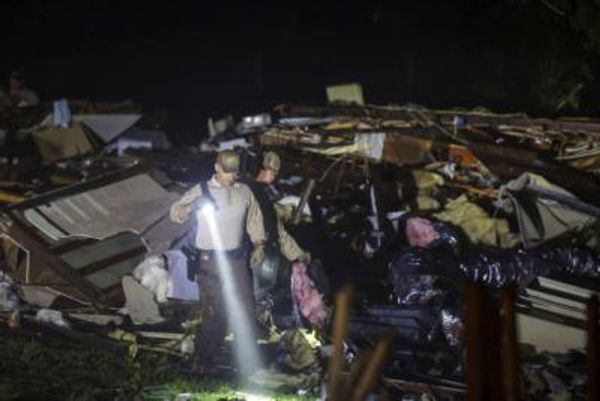
The growing toll of death and illness from the climate crisis can be seen in the latest report from the Australian Institute of Health and Welfare (AIHW) on injuries caused by extreme weather.
The report covers deaths and hospitalisations from heat, bushfires, rain storms and cold — although heat accounted for 78% of hospitalisations in the decade to 2022 and 43% of deaths over the decade to 2021. While the level and nature of health impacts are related to whether Australia is experiencing an El Niño or La Niña weather event, the number of weather-related hospitalisations is increasing over time, reflecting that the number of extreme heat days per year is now significantly higher than even 20 years ago. The number of hospitalisations for heat-related injuries in 2020-21 and 2021-22, marked by La Niña and higher than average rainfall, were still higher than in the El Niño years of 2014-16; as the AIHW notes, a La Niña year now is warmer than an El Niño year in the 1980s.
And while heat hospitalisations are predominantly of older people (more than half are of people over 45), more than 40% are of young people (8.4% of children under 14). There are also a range of heat-related impacts that don’t show up in the hospitalisation data. According to AIHW, “high temperatures are also linked to irritability, fatigue, and decreased performance, which can increase the risk of injury by impacting behaviour such as operating vehicles and power tools. There is evidence to suggest that higher daily temperatures are associated with an increased propensity for assault. The risk of drowning deaths has also been shown to increase during heatwaves.”
The AIHW also noted in a 2022 report that it’s hard to accurately assess the undoubted health impacts of bushfire smoke exposure over the long term due to its sporadic and infrequent nature.
One figure not covered in the new AIHW report is the health impact of air pollution and in particular coal-fired power plant pollution. The 2022 report noted that in 2018, particulate matter pollution accounted for more than 3,200 deaths and 1.3% of the total burden of disease.
A 2018 study found that particulate matter from five coal-fired power stations by themselves was responsible for 279 premature deaths a year in the Sydney, Central Coast and Hunter Valley regions, along with other health impacts like low birth weight and diabetes. One of those power stations, Liddell, has since been shut.
In the United States, deaths from particulate matter are estimated to be between 100,000 and 300,000 a year. A 2023 report from the Sierra Club estimated that the premature death toll from the remaining fleet of US coal-fired power plants totalled 3,800 a year. Remarkably, only a small fraction of those deaths occurred in the same area as the power stations involved — the great bulk of the deaths were recorded further afield or, in some cases, in another state entirely. A 2021 European study identified over 16,000 premature deaths from coal-fired power plant emissions across the continent.
The vast death toll from coal-fired power stations — 200-plus every year in NSW alone — is the great unspoken cost of our failure to develop a coherent renewables development strategy. Because the victims are unknown and unnamed, and their families may not even be aware of the role particulate matter played in their deaths, they don’t figure in public debate about the energy transition, and are absent from coverage of, for example, NSW Labor’s enthusiasm for propping up unviable power stations like Eraring with taxpayer money.
They also represent blood on the hands of every coal lobbyist, fossil fuel-friendly politician, NIMBY property owner and climate denialist commentator who has tried to derail the transition to renewables, the silent death toll of their self-interest. But it’s been normalised as business as usual, with taxpayers, communities and families left to bear the burden. Denialism and feet-dragging have a body count.
Have you or someone you know been affected by poor air quality? Or are you simply terrified by the increasing intensity of extreme heat events? Let us know by writing to letters@crikey.com.au. Please include your full name to be considered for publication. We reserve the right to edit for length and clarity.







